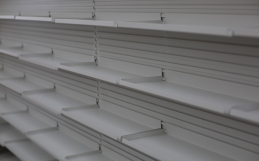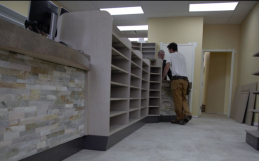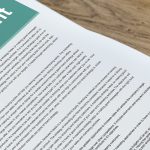Would you buy a house with a home inspection? Don’t buy a pharmacy without a building inspection either.
A pre-lease inspection is a crucial step when renting or buying a new property, whether it’s a residential or commercial building. It’s important to verify that the property matches what is described on the lease and there aren’t any surprises waiting for you. Here at O’Connell Store Fixtures, we have dealt with too many pharmacy owners who signed leases for properties that would not have passed inspection — often because they did not bother to visit them first!
We know that a pre-lease inspection is unfamiliar territory for new owners. If you don’t know what you should be looking for during an inspection, it can seem like a waste of time. That’s why it is important to enlist the help of an expert, who can provide the insight that you may lack.
If you decide to do a pre-lease inspection on your own, we’ve created this resource to help you assess prospective properties in Ontario. Please feel free to leave a comment or contact us with any questions.
1. Floors
When you enter a prospective location, the first place to look is the floor. Check the condition of the floor material and assess whether it will need to be replaced or updated. Pharmacy floors require material that can handle exposure to different chemicals and liquids, in case of spillages, and that can be kept sanitary for sterile rooms or clean rooms. Carpets will need to be removed.
Check the structural stability of the floor as well. You need to be sure that it can handle the weight of shelving units and other furniture. If you have any doubts about the stability of the flooring, you should consult with a professional immediately.
2. Walls & Ceiling
The most important thing to spot are cracks in the walls or ceiling. Similar to unstable floors, cracks can indicate a structural problem. Finding one should prompt you to contact a professional building inspector, who can gauge the severity of the problem.
Look for water stains in the ceiling tiles, which can indicate uninsulated pipes or leaks in the roof. Have the landlord rectify the situation before you sign the lease. If left alone, this problem will be sure to reappear in the future.
Otherwise, you should look for holes and patches, while assessing the overall paint condition. Your pharmacy needs to be a professional and sanitary space. You may want to repaint it before opening and you may need to use specialized paint for sterile rooms or clean rooms. Consider how much work will need to be done to get the interior in proper shape.
3. Doors
Make sure you have them! But seriously — we have worked with clients in the past who failed to check this basic detail. Consider where you will need doors in the plan of your pharmacy — especially fire doors. Is there enough space? Are the doors the incorrect size? Will creating one compromise the building’s structural integrity? If the answer is ‘yes’, then your property may be a poor fit.
4. Electrical
Did you know that buildings with medical zoning, such as medical clinics, will require different wiring? Every outlet needs to be set on a separate circuit to protect against power surges.
When you visit a prospective property, check out its current electrical capacity. Assess how much you will need to change to meet your requirements. Basic details, such as whether existing outlets work, are helpful to know as well.
5. Plumbing
Your pharmacy is likely to come with plumbing included as a building service. That being said, you should figure out what the landlord means by ‘plumbing’. We have seen cases where plumbing meant an open pipe leading into the pharmacy space. The same is true for electrical.
A pre-lease inspection may seem like a formality; however, based on our experiences, it is a necessity for any commercial lease. If you follow our pre-lease inspection checklist, you should be able to identify any red flags for your prospective property.
For help with a pre-lease inspection, you can contact the team at O’Connell Store Fixtures in Ontario today.










